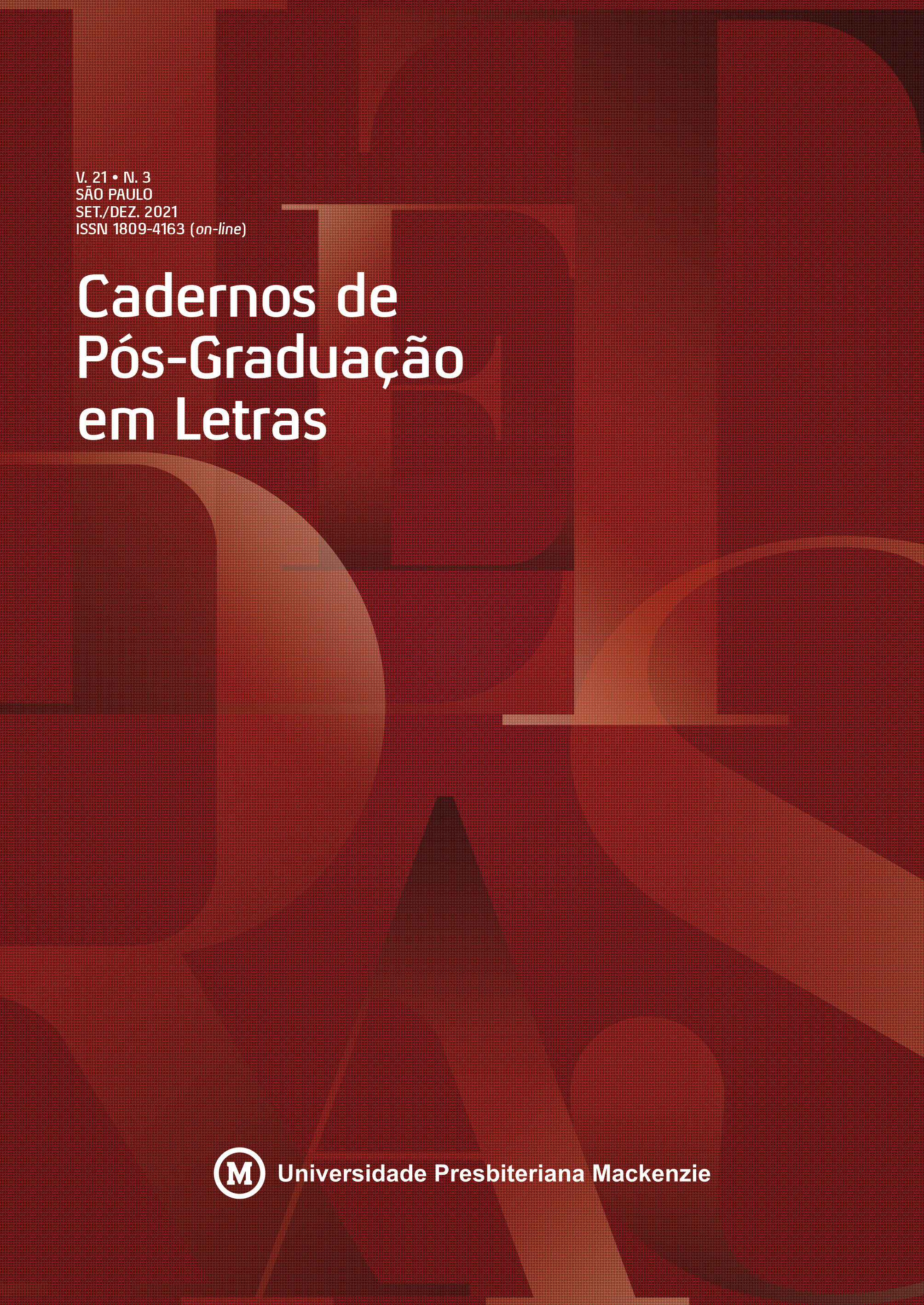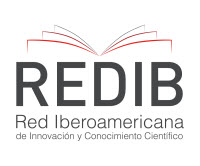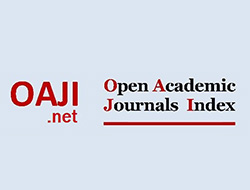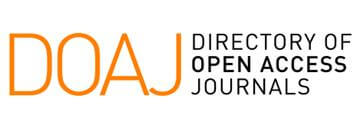Reading comprehension
Retrospectives and perspectives regarding the text meaning (re)construction
Palabras clave:
Psycholinguistics, Reading, ComprehensionResumen
The comprehension of a text sets the general objective of a reader faced with the reading. Based on that, it is questioned how reading comprehension occurs from the psycholinguistic point of view. For that, a bibliographic research was developed, synthesizing one of the most influential models of text comprehension – the Kintsch and van Dijk’ (1978). It was found that, in order to comprehend a text, the reader relies on a series of macrorules/macrostrategies to select the most relevant textual propositions in order to construct a coherent mental representation of what was read. Therefore, the reading comprehension is a cognitive task which requires the integration of the language input with the prior knowledge of the reader.
Descargas
Citas
FINGER-KRATOCHVIL, C. Estratégias para o desenvolvimento da competência lexical: relações com a compreensão em leitura. 2010. Tese (Doutorado em Linguística) – Universidade Federal de Santa Catarina, Florianópolis, 2010.
GABRIEL, R. Cognitive aspects and teaching implications involved in the evaluation of reading comprehension. In: SCLIAR-CABRAL, L. (ed.). Psycholinguistics: scientific and technological challenges. Porto Alegre: EdiPUCRS, 2010. p. 122-130.
GIRALDELLO, A. P. Aspectos psicolinguísticos da leitura. Unoesc & Ciência – ACHS, v. 7 n. 1, p. 23-30, 2016a.
GIRALDELLO, A. P. Um diálogo entre psicolinguística e análise de discurso: que é leitura? Intercâmbio, v. 32, n. 2, p. 1-16, 2016b.
HARLEY, T. A. The psychology of language: from data to theory. New York: Psychology Press, 2008.
HIRSCH, E. D. Reading comprehension requires knowledge – of words and the world. American Educator, v. 27, n. 1, p. 10-13, 2003.
KATO, M. A. O aprendizado da leitura. 6. ed. São Paulo: Martins Fontes, 2007.
KINTSCH, W. The use of knowledge in discourse processing: a construction-integration model. Psychological Review, v. 95, n. 2, p. 163-182, 1988.
KINTSCH, W.; FRANZKE, M. (1995). The role of background knowledge in the recall of a news story. In: LORCH JR., R. F.; O’BRIEN, E. J. (ed.). Sources of coherence in reading. New Jersey: Lawrence Erlbaum Associates, 1995. p. 321-333.
KINTSCH, W.; RAWSON, K. A. Compreensão. In: SNOWLING, M. J.; HULME, C. (ed.). A ciência da leitura. Porto Alegre: Penso, 2013. p. 227-244.
KINTSCH, W.; VAN DIJK, T. A. Toward a model of text comprehension and production. Psychology Review, v. 85, n. 5, p. 363-394, 1978.
KLEIMAN, A. B. Leitura: ensino e pesquisa. São Paulo: Pontes Editores, 2011.
KLEIMAN, A. B. Texto e leitor: aspectos cognitivos da leitura. São Paulo: Pontes Editores, 2009.
MORAIS, J.; LEITE, I.; KOLINSKY, R. Entre a pré-leitura e a leitura hábil: condições e patamares da aprendizagem. In: MALUF, M. R.; MARTINS, C. C. (ed.). Alfabetização no século XXI: como se aprende a ler e a escrever. Porto Alegre: Penso, 2013. p. 17-48.
RODRIGUES, M. B. Avaliando a avaliação: os documentos orientadores do ensino médio e as provas de compreensão leitora – ENEM, SAEB, PISA. 2013. Dissertação (Mestrado em Letras) – Universidade de Santa Cruz do Sul, Santa Cruz do Sul, 2013.
SOLÉ, I. Estratégias de leitura. Porto Alegre: Artmed, 1998.
SOUZA, A. C. Leitura, metáfora e memória de trabalho: três eixos imbricados. 2004. Tese (Doutorado em Linguística) – Universidade Federal de Santa Catarina, Florianópolis, 2004.
SPINILLO, A. G.; MOTA, M. M. P. E.; CORREA, J. Metalinguistic awareness and reading comprehension: different facets of a complex relationship. Educar em Revista, v. 38, n. 1, p. 157-171, 2010.
VAN DIJK, T. A. Macrostructures: an interdisciplinary study of global structures in discourse, interaction, and cognition. New Jersey: Lawrence Erlbaum, 1980.
VAN DIJK, T. A.; KINTSCH, W. Strategies of discourse comprehension. New York: Academic Press, 1983.
Descargas
Publicado
Cómo citar
Número
Sección
Licencia
Os direitos autorais dos artigos publicados nos Cadernos de Pós-Graduação em Letras pertencem aos autores, que concedem à Universidade Presbiteriana Mackenzie os direitos exclusivos de publicação do conteúdo. É vedada sua reprodução total ou parcial sem a devida autorização da Comissão Editorial, exceto para estudo e pesquisa.











